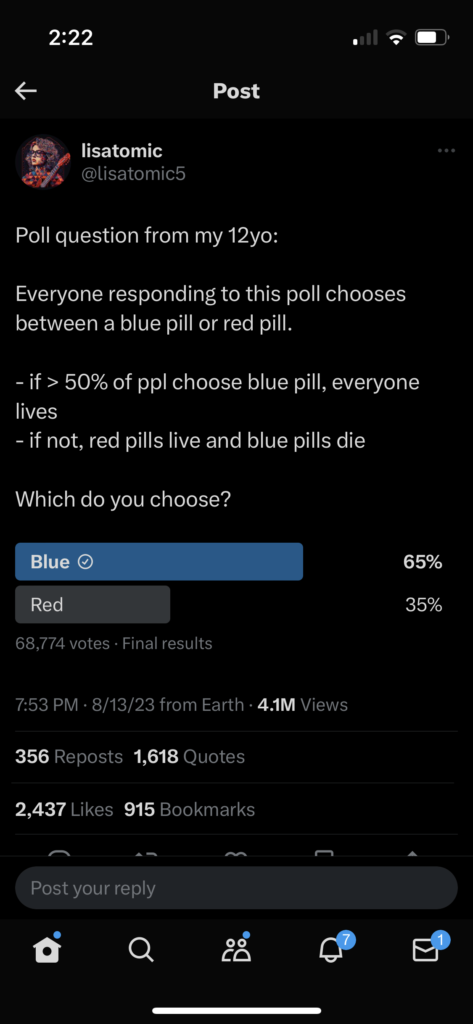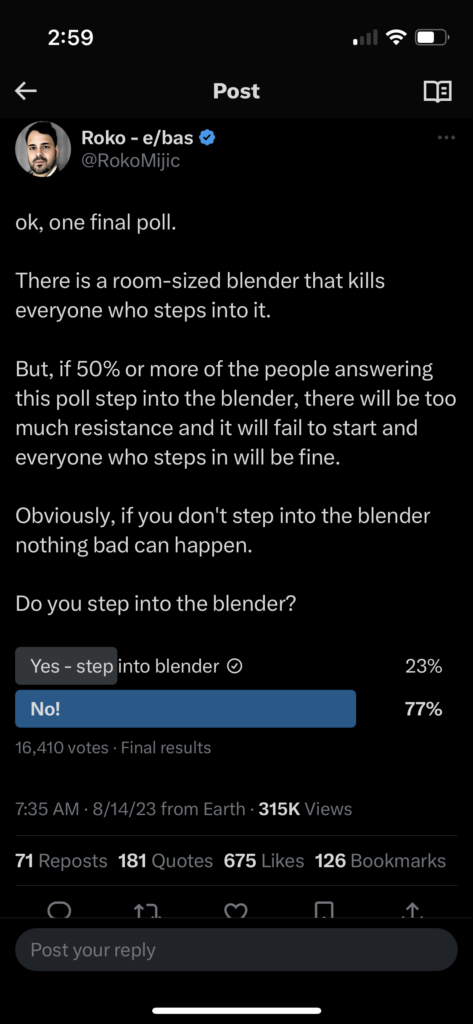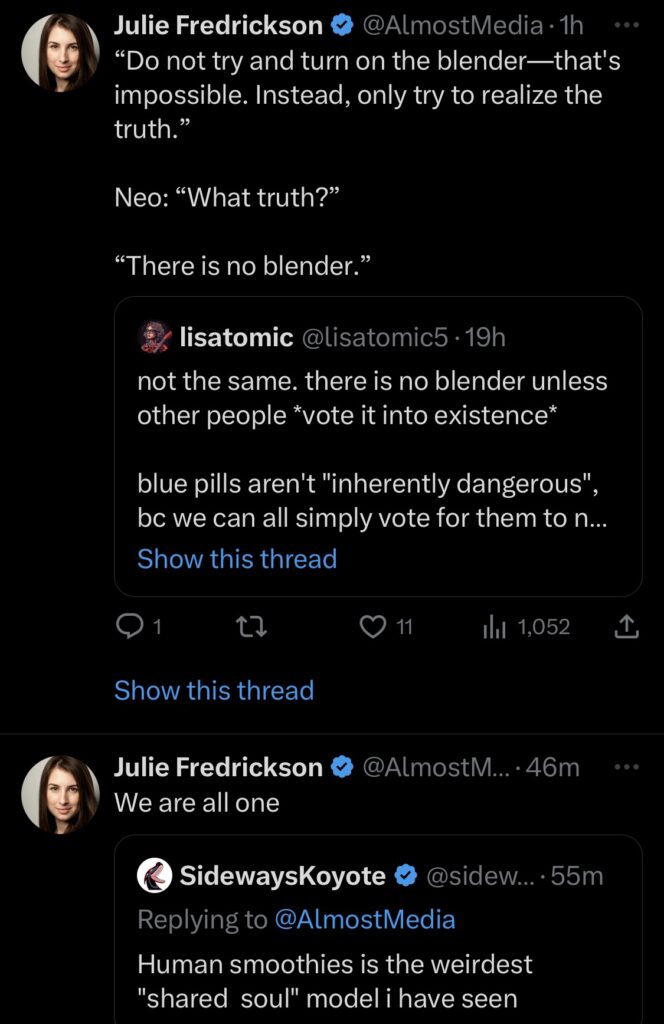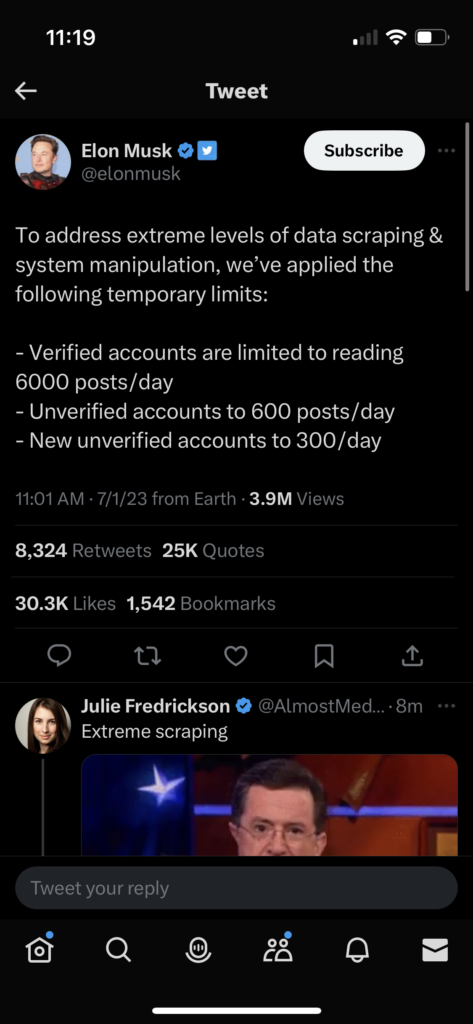Do you recall learning Hippocratic Oath at some point in your schooling?
First do no harm
That turns out to not even be in the original oath but one of the many varied additions over the ages. The more often repeated phrase is translated as follows. “I will abstain from all intentional wrong-doing and harm.”
The document dictated standards like keeping professions secrets and avoiding using poisons knowingly for suicide or abortions. But somehow in popular imagination “do no harm” has really stuck.
Now we are stuck with the precautionary principle as it’s heir. The principle suggests there is a social responsibility to protect “the public” from harm when there may be a plausible risk even in theory. Big ups to Hans Jonas’s imperatives on responsibility for giving us the ethical frameworks for technological skepticism.
We apply the precautionary principle in many fields from medicine to the military. It suggests precautionary protections should be relaxed only if there is evidence that no harm will result. It’s for your own good!” It’s included as a statutory in some areas of law. Progress can’t be too fast lest someone get hurt
But before you give too much credit caution, it’s important realize the cost of inaction can be high.
As Mercatus Center’s Adam Thierer put it, “Where there is uncertainty about future risks, the precautionary principle defaults to play‐it‐safe mode by disallowing trial‐and‐error progress, or at least making it far more difficult.”
The inclination to play things safe can have incredibly high costs for people who need progress. Much the current debate around artificial intelligence is centered on doomsday scenarios. Safety and alignment researchers bring up terrifying scenarios as justification for taking things slow.
But we shouldn’t be too quick to dismiss what AI can do to make life better. You want to tell someone with a painful chronic illness it’s better to wait on medical progress because of some theoretical harm? They already live with an all too real harm that we should be just as eager to to fix with powerful new tools like AI.
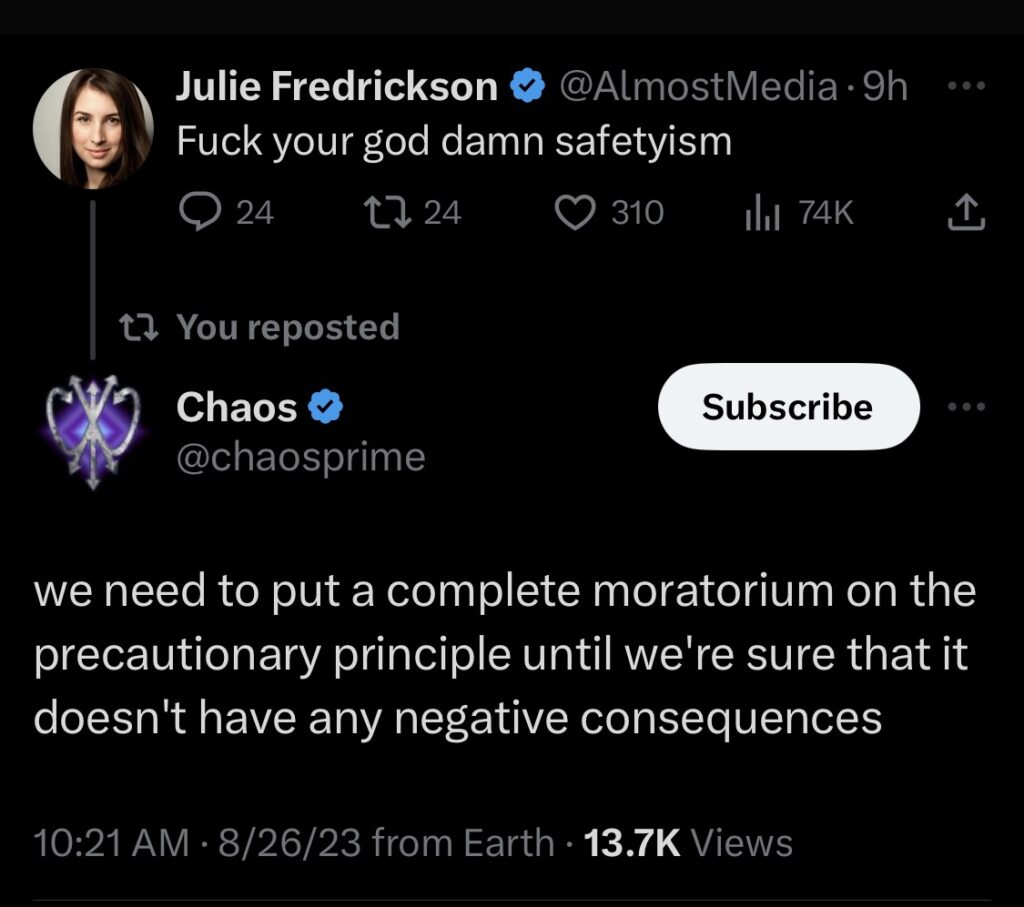
I’d rather we adopt a more ambitious attitude towards problem solving. Fuck your safetyism.
We need to put a complete moratorium on the precautionary principle until we’re sure that it doesn’t have any negative consequences
